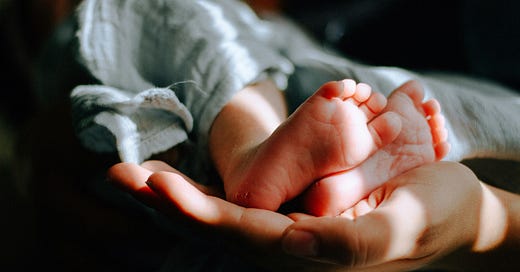Does parliament value life and protect the vulnerable?
The attitude and votes of MPs such choice and autonomy is more important.
Many MPs talk about caring for the least in society as a key motivating reason for running for election and wanting to make a difference both for their local community and the nation as a whole.
This week has presented them with two opportunities to speak up and support some of the most vulnerable people in our nations.
First came this evening(Tuesday), when during the House of Commons debate on the Crime and Policing Bill two different amendments were proposed which would radically change how abortion is understood in our legal system. After just two hours debate MPs backed by a significant margin to change the law so that a woman cannot be prosecuted in relation to her own abortion, even if that is outside the parameters permitted by the 1967 Abortion Act.
One would have thought that the most significant change to such a controversial and highly charged ethical issue would warrant serious thought and debate, instead many presented this as a common sense, why on earth wouldn’t we, type of issue.
Maybe that is because while the law provides for abortion at specific times for specific reasons with two doctors signing it off, the practice is that people can receive abortion without question until they are 24 weeks pregnant. This is based on a faulty notion of choice and bodily autonomy that suggests a baby is an extension of a woman’s body, and therefore her choice, rather than a life of its own.
The other amendment which was not pushed to a vote would have gone further and entirely dismantled the legal framework around abortion as while as enshrine abortion as a human right.
The supposed justification for the change parliament agreed was the tiny number of prosecutions of women for abortions beyond 24 weeks, which largely has been a result of the availability of abortion pills in the post, with only a telephone consultation. No doctor certified how many weeks pregnant a woman was, and therefore inappropriate medication was offered – such pills are only for early abortions in the first 10 weeks of pregnancy. Whether the women in question really thought they were less than 10 weeks pregnant, or knew they weren’t, is not for me to say. A far more affective response would have been the proposal suggested by Caroline Johnson MP, but rejected by ¾ of MPs to reinstate in person consultations for all abortions.
What this change will do is while ensuring such cases do not lead to criminal prosecution for women in such circumstances, it will also incentivise them seeking dangerous abortions outside the medical system. This is because while they are exempt from prosecution any doctor who assisted them with an abortion that would not be permitted under the 1967 Act would still be liable for prosecution.
Pregnancy is about two lives, the mother and the baby, and our system has to work for both. This change disregards the legal status of the baby – at any point during pregnancy, and leaves woman far more vulnerable to coercion and dangerous abortions. It was not a surprising outcome but it is immensely sad.
The second area where life is on the line this week is the votes in the House of Commons on Kim Leadbeater’s assisted suicide bill. Parliament has certainly spent a lot of time on this, and yet few of the proposed amendments have received proper consideration or even been voted on. The problems with the legislation are legion, and many who in principle may back assisted suicide think this proposal is unsafe.
I’ve been clear before that I oppose it both in principle – I could never support a law that actively promoted premature ending of life, and also think this particular proposal is a complete mess. It has also highlighted the challenges for legislation, and for parliament, in addressing complex ethical issues, and the reality of whether MPs have much opportunity to influence and amend laws as they pass through the Houses of Parliament. I also think it shows the particular problem of a non-government bill being used for such momentous change – but that’s probably a post for the future.
I honestly do not know, and I don’t think anyone below heaven does, how the votes on Friday will go. The bill passed an earlier stage with a majority of 55, requiring 28 MPs to switch for it to fall, there have been some declarations from MPs that they will vote against having previously supported it, but not enough publicly to have confidence it will be blocked. I’m fervently hoping and praying that it will.
What happens if it passes isn’t entirely clear, the House of Lords also have to debate and scrutinise the proposals and there isn’t that much parliamentary time, if they even change one clause it will have to come back to the House of Commons for further votes, and that will be dependent on the government allocating it time.
Please join me in praying this bill will fail.




